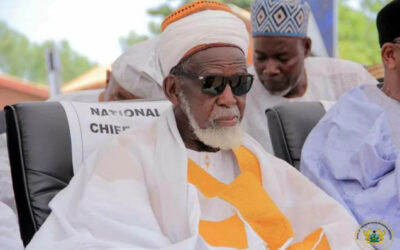Source: tntnewspapergh.com
George Akom, a Governance Analyst, has expressed concern about the recent political turmoil in Ghana which is spreading fast in our national and party politics.
He indicated that apart from political violence which has become a canker, the recent political character assassination is eroding the trust in democracy.
In very democracy, disagreement is natural. Citizens expect politicians to argue about ideas, policies, and priorities.



George Akom
Yet, more often than not, the battlefield shifts from issues to individuals. Instead of debating solutions, political actors invest energy in destroying reputations. This tactic — known as character destruction or character assassination — is as old as politics itself, but in today’s media environment it has become sharper, faster, and more damaging.
Character destruction goes beyond criticism. It is a calculated attempt to damage a leader’s credibility and moral standing by focusing on private behaviour, personal traits, or identity. It is not about policies or performance but about framing the person as unfit to serve. These attacks may come in the form of smear campaigns, rumors, manipulated scandals, or even targeted social media harassment.

The method is effective because human beings are more likely to remember negative stories than positive ones. A short allegation such as “he is corrupt” or “she is untrustworthy” often sticks longer than any complex rebuttal. The modern media cycle — fueled by viral social media posts — amplifies these attacks at lightning speed. Even when false, they leave a stain that is difficult to erase.
Research shows that survival often depends on context. If the attack comes from a powerful rival and is widely amplified in the press, the damage is greater. If the politician responds quickly and credibly, or if the media exercises restraint, the target stands a better chance of recovery.
Not all politicians face these attacks equally. Women and minority leaders are more likely to be hit with gendered or identity-based insults, which exploit existing social stereotypes. Reformers and outsiders also tend to be vulnerable because they threaten established interests.
Meanwhile, incumbents with strong party backing and loyal media allies sometimes weather even the harshest accusations.
The real victim of character destruction is not only the politician but the democratic system itself. When smear campaigns dominate headlines, citizens lose trust in politics. Policy issues such as jobs, education, and healthcare are overshadowed by scandal. Polarization deepens as voters are encouraged to see opponents not as rivals but as enemies. Worst of all, honest voices may be silenced because they fear being personally attacked.
The answer is not to shield leaders from accountability. Politicians must face legitimate scrutiny for their actions in office. But societies need guardrails to separate fair criticism from reputational warfare.
He enumerated that the under-listed measures must be adopted to solve the menace of character assassination in politic;
Politicians should invest in rapid-response strategies, offering timely, evidence-based replies instead of trading insults
Journalists must verify allegations before publication and avoid sensationalizing unverified claims.
Citizens have a role too — by questioning sources, resisting the urge to spread rumors, and focusing on issues over personalities.
Platforms can reduce the damage by labeling or slowing the spread of unverified content.
Conclusion
Character destruction in politics is not new, but its impact today is more corrosive. Democracies thrive when debates focus on ideas, not insults. As voters, journalists, and leaders, the responsibility is shared: to ensure that political competition remains robust, honest, and issue-driven. Only then can citizens trust that their leaders are chosen for their vision and competence, not for their skill in surviving smear campaigns.


















